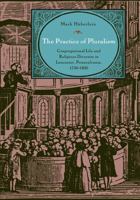Pious Traders in Medicine: A German Pharmaceutical Network in Eighteenth-Century North America
(Part of the Max Kade Research Institute: Germans Beyond Europe Series)
Select Format
Select Condition 
Based on Your Recent Browsing
Book Overview
This book tells the story of two generations of Pietist ministers sent from Halle, in Brandenburg Prussia during the eighteenth century, to the German communities of North America. In conjunction with their clerical office, these ministers provided medical services using pharmaceuticals and medical texts brought with them from Europe. Their practice is an example of how different medical markets and medical cultures evolved in North America.At the heart of the story is the Francke Orphanage, a famous religious and philanthropic foundation started in Halle in 1696. Pharmaceuticals from Halle were manufactured and sold throughout Europe as part of a commercial enterprise designed to support Francke's charitable goals. Halle's reputation for consistent product quality and safety soon spread to North America, where men and women became actively engaged in providing medical care to Lutheran and Reformed congregations along the east coast, mainly the backcountry of Pennsylvania, New Jersey, Maryland, and Virginia. The story continues to about 1810, when Halle's North American clergy had become independent from the motherhouse and American medical practice and education began to follow its own course.Wilson draws upon a large array of correspondence, trading ledgers, and daybooks in European and American archives. Through these records she enables us to see firsthand the experience of men and women as both patients and practitioners. The result is a rare glimpse into the world of German medicine and the pharmaceutical trade in eighteenth-century North America.
Format:Paperback
Language:English
ISBN:0271028335
ISBN13:9780271028330
Release Date:November 2000
Publisher:Penn State University Press
Length:272 Pages
Weight:0.90 lbs.
Dimensions:0.6" x 6.0" x 9.0"
Customer Reviews
5 customer ratings | 5 reviews
There are currently no reviews. Be the first to review this work.



































